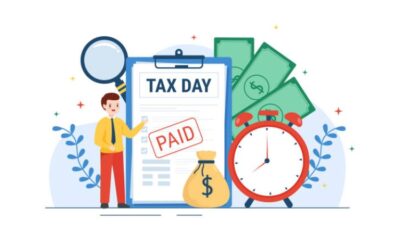Festivals & Events
Presidents Day and the IRS: Four Things You Should Know

With Presidents Day approaching and the 2024 tax year officially starting, a vast number of individuals are getting ready to submit their federal income tax returns. The IRS is also extremely busy at this time of year, as one might anticipate.
IRS Commissioner Danny Werfel noted in a statement the significance of providing effective taxpayer service as well as the typical spike in calls the agency receives around Presidents Day.
“We’ve worked hard to provide better taxpayer service for people this filing season with more options to reach the IRS in convenient ways,” Werfel said. “We want taxpayers to have access to the help they need around the clock.”
In light of this, here is additional information to help you manage tax season more successfully when interacting with the IRS in the weeks leading up to President’s Day.
- Is the IRS open on Presidents Day?
First off, Presidents Day is a closed day for the IRS. Federal employees have the day off on Monday, February 19, as it is a federal holiday. This includes IRS employees.
However, because so many people are getting ready and filing their taxes around Presidents Day, the agency experiences high volume during that time. As previously noted, there has historically been a notable spike in taxpayer phone calls to the IRS in the weeks following the Presidents Day holiday.
The IRS is advising taxpayers to take advantage of the online tools and resources that are offered on IRS.gov as a result. These digital services, which range from personalized help to step-by-step filing guidance, are intended to offer prompt resolutions and reduce the load on IRS phone lines.
By logging into your IRS online account, you can also access the details of your personal tax account.
From there, you can monitor your payment history, get virtual help for questions about payments, and control how you want to be contacted about tax-related matters.
- How to check the status of a tax refund
Nearly 99% of taxpayers file their federal income tax returns electronically, according to the IRS. The Internal Revenue Service notes that electronic filing reduces errors and speeds up the refund process because it incorporates error checks and tax software computations. Choosing direct deposit also guarantees faster refunds.
Moreover, you can use IRS.gov’s “Where’s My Refund?” tool to monitor the progress of your reimbursement.
- You can find a good income tax preparer
The IRS Directory of Federal Tax Return Preparers is a useful tool if you’re seeking for expert help with tax preparation. Accurate filings can be ensured by selecting a qualified and reliable preparer. A financial advisor or tax expert can also offer advice specific to your situation.
- Ways to file taxes for free
For eligible taxpayers, the IRS provides free online tax preparation through IRS Free File, as well as in-person help through Tax Counseling for the Elderly (TCE) and Volunteer Income Tax Assistance (VITA). Recently, the IRS announced that special Saturday hours will be available for in-person assistance at taxpayer assistance centers nationwide for the upcoming few months.
These initiatives are intended to reduce the cost of tax preparation, particularly for low- to moderate-income individuals and families. (During this filing season, individuals with an adjusted gross income of $79,000 or less in 2023 can use IRS Free File.)
Bottom line: 2024 tax season
The majority of people’s taxes are due on April 15, 2024, even though many choose to file early. However, the IRS may decide to extend the tax deadline for individuals residing in areas affected by natural disasters during the tax season.
It’s crucial to be on the lookout for identity theft and scams. Identity Protection PINs (IP PINs) are issued by the IRS as a preventative measure against identity theft related to taxes.
Only you and the IRS are aware of the six-digit code, which aids in identity verification and deters fraudulent tax filings.
Furthermore, keep an eye out for any legislative tax changes that may affect the child tax credit, as reported by Kiplinger. Your tax bill may be affected by that and other proposed tax breaks for families and businesses, possibly leading to a refund.
-

 Sports4 weeks ago
Sports4 weeks agoFIFA Club World Cup 2025: Complete List of Qualified Teams and Groups
-

 Sports3 weeks ago
Sports3 weeks agoAl Ahly vs Inter Miami, 2025 FIFA Club World Cup – Preview, Prediction, Predicted Lineups and How to Watch
-
Health1 week ago
Back to Roots: Ayurveda Offers Natural Cure for Common Hair Woes
-

 Tech2 weeks ago
Tech2 weeks agoFrom Soil to Silicon: The Rise of Agriculture AI and Drone Innovations in 2025
-

 Sports3 weeks ago
Sports3 weeks agoFIVB Men’s Volleyball Nations League 2025: Full Schedule, Fixtures, Format, Teams, Pools and How to Watch
-

 Science4 weeks ago
Science4 weeks agoEverything You Need to Know about Skywatching in June 2025: Full Moon, New Moon, Arietid Meteors, and Planetary Marvels
-

 Startup3 weeks ago
Startup3 weeks agoHow Instagram Is Driving Global Social Media Marketing Trends
-

 Television4 weeks ago
Television4 weeks agoTribeca Festival 2025: Date, Time, Lineups, Performances, Tickets and How to Watch

























